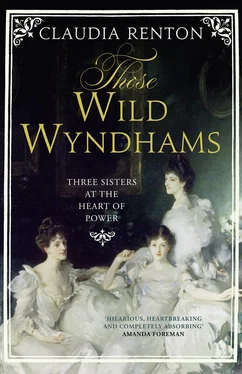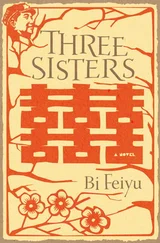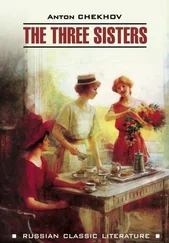In the latter half of the nineteenth century Blunt was notorious in political circles as an anti-imperialist troublemaker. Socially he was regarded with equal suspicion as a lothario, capable of seducing any man’s wife. Yet this inveterate womanizer’s diaries, in which he recorded every conquest (albeit sometimes a little embroidered), show him as nothing so much as a perplexed cork buffeted on the waves of strong women’s personalities. With each affair, Blunt made grand plans for a lifelong passion. Almost invariably, his paramours called it off, returning to their husbands enlivened by their brief dalliance.
Madeline and Wilfrid had known each other for many years when they tipped from friendship into ‘passionate fulfilment’, in Blunt’s words. He had always found Madeline seductive – ‘a tall strong woman, such as are the fashion now; no porcelain figure like the beauties of the last century, nor yet the dull classic marble our fathers loved’ 66– and their affair seems in large part provoked by intense mutual physical attraction. Blunt dressed it up as a meeting of two artistic minds. Their piecemeal dalliances – romantic visits to Watts’s studio in London and trysts among Hyères’ olive groves – provided ‘something apart’ from Madeline’s sometimes ‘overpowering’ domestic life.
Blunt maintained that the affair did not affect Madeline’s love for her husband and children: ‘what she gave to me was not a plunder robbed from any other. Her tenderness was no mere weakness of the heart, but its strength rather, proving its wealth …’. 67Wilfrid rarely saw things clearly, and this was no exception. Among his papers is a photograph of Madeline with Pamela upon her lap. Madeline is in mourning, presumably for her brother-in-law Lord Mayo, the Viceroy, who was assassinated while visiting a penal colony in the Andaman Islands in 1872. She wears an elaborate dark hat that shades her hooded eyes. Her features have been refined with age. She appears leaner and finer than Watts’s voluptuous beauty of three years before, and almost sad. Tousle-haired Pamela sits on her lap, eyes skyward as though she is trying to glimpse her mother’s face even as Madeline grasps her daughter firmly around her stout waist. On the back of this photograph is a note in Madeline’s handwriting: fragmentary, it appears to have been written in a hurry. Wilfrid must not come to look for her until later. ‘I think [Percy] is not happy at finding me not alone he has not said it but I think it … my heart fails me … you have chosen the lowest oh it makes me so sad – I don’t know why my heart is not up to it I have no courage …’ 68
In 1873 the Wyndhams rented Château Saint-Pierre, a neo-gothic pile near to Emily and Charley Ellis in Hyères. They settled their children there with nurse, governess and tutor, and left for several months’ travel across France and Italy, sightseeing and buying art. This was the Wyndhams’ longest absence – by far – from their children throughout their childhood. Undoubtedly the trip was intended as a second honeymoon to reunite them. The following year, Percy took the lease of Wilbury Park in Newton Toney, some 10 miles from Salisbury on the Wiltshire Downs. In later life, Madeline wrote her daughters impassioned warnings (scored with underlining and written in her trademark purple ink) about the dangers of drifting from their husbands. It seems she was speaking from personal experience. Wilbury, which provided easy access to London by train from Amesbury, allowing Madeline to maintain her life among the city’s aristocratic art crowd, and offered excellent hunting and shooting and reasonable trout-fishing for Percy, was to arrest that drift. 69
The affair finally ended only in 1875. Madeline asked Wilfrid to return to friendship. ‘What is this prate of friendship?’ wrote Wilfrid furiously in a sonnet, ‘To Juliet’. In his diary, sore-pawed, he attacked Madeline as ‘a pottery goddess … I do not think her beautiful, or wise, or good. Her beauty is a little too refined, her wisdom too fantastic, her goodness too selfish …’ 70Trying to forget his fantasies of a life together with her, he dusted himself off and attempted to dismiss the affair: ‘it was all pleasure, of a high sensual kind, heroic in its tenderness and with no afterthought of pain. Its departure caused no unbearable sorrow. Even when it had ended finally as passion I did not grieve for her because I knew she did not grieve for me …’ 71
A veil was drawn over the incident. Percy never spoke of it. But between Madeline and Wilfrid there remained some friction. Despite Wilfrid’s surmises, Madeline does not seem to have escaped entirely unscarred. Many years later she advised Pamela that the power ‘not to fret over spilt milk is a great faculty it almost amounts to wisdom’. Years of ‘ experience & hard toil’ had taught her to let go of the regret ‘that kills’. 72Madeline did not say what that regret was. One can hazard a guess.

In the late 1870s, with relations once again on an even keel, the Blunts visited the Wyndhams at Wilbury. As Wilfrid left, he kissed Mary on the cheek: ‘in a cousinly way’. 1Mary blushed. Afterwards, Madeline scolded her with unusual and uncharacteristic vehemence. The incident, notable enough for Mary to remember it twenty years later, suggests that the adolescent knew something of the affair just past. It is also a rare chink in the Wyndham armour, a moment when one of Percy’s ‘remarkable quintette’ 2– in his words – lets slip something suggesting their family life was not so perpetually sunlit as they maintained.
Percy and Madeline’s devotion to their children, and their disregard for convention, generated intense familial closeness. George spoke of ‘the Wyndham-religion’; 3Mary’s daughter Cynthia explained that ‘Family love was almost a religion with the Wyndhams.’ 4A legendary anecdote – familiar to almost all their contemporaries – concerned Percy impatiently shushing his collected dinner guests, hissing, ‘Hush. Hush! George is going to speak!’ as his schoolboy son prepared to give the table his views. 5Ettie Desborough, close friends with Mary and George, described the clan as being bred up with the pride of Plantagenets. 6Their loyalty was fearsome. They would never listen to criticism of their own, far less give it.
At the time of Wilfrid’s visit to Wilbury, Mary was in her mid-teens, awkward, lanky, childish for her age. She was devoted to her dog Crack, a thirteenth-birthday present, and her pet rat Snowy. 7She adored the caricatures of Dickens and the romances of Sir Walter Scott. She had inherited her mother’s artistic talent, and spent hours making elaborate cards and teasing cartoon sketches for her younger sisters, to whom she was known by a host of nicknames, ‘Black Witch’, ‘Sister Rat’ and ‘Migs’ (or ‘Mogs’) being just a few. She was a devotee of ‘Spression’ – a sort of pidgin English mixed with baby talk that she spoke with her closest friend, Margaret Burne-Jones, given somatic form by cartoons drawn by Edward Burne-Jones for the girls, endearingly shapeless animals that have been described as part pig, part dog, part wombat. 8
An insight into Mary’s character comes from one of her most vivid childhood memories, probably from the summer of 1875, which she spent at Deal Castle – a place she thought ‘must be haunted by my girl spirit I was there so much’ 9– while recovering from whooping cough. She remembered sitting by the moat and, in a ‘moment of cruel curiosity’, feeding a live bluebottle fly to a ‘huge spider [with] shining eyes’. As Mary recalled, she was immediately ‘seized with remorse and probably killed both in righteous wrath’. 10Mary had a delight for the gruesome (demonstrated by a zestful account to her mother of a bilious attack aged eighteen: ‘I brought up basins of the thickest, gluest [sic] phlegm, slime, burning excruciating yellow acid with little streaks of browny reddy stuff in it, sometimes great gollops of brown fluid … Lastly Tuesday morning, came green bile’), 11a curious mind and an adventurous spirit. She had a tendency to act first and think later: more accurately an inclination to ‘choose to prefer the gratification of the present … to slide & glide because it was pleasant or amusing & exciting & to face & bear the consequences when they came’. 12In adulthood, Wilfrid thought Mary sphinx-like in her inscrutability, speaking of her ‘unfathomable reserve … her secrets are close shut, impenetrably guarded, with a little laugh of unconcern baffling the curious’. 13Wilfrid was all too frequently baffled by women, but Pamela described her sister in similar terms, speaking of a ‘deep nature’ that only Mary’s closest friends truly knew. 14
Читать дальше













